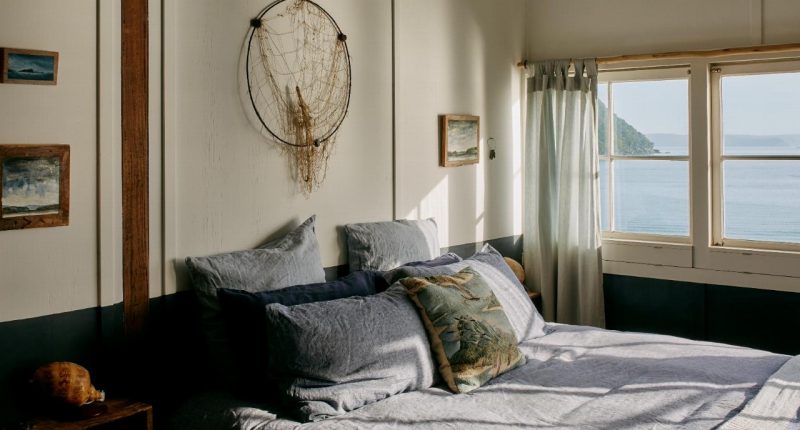- Sydney rents decreased during the pandemic as investors switched from short-term vacation lettings to typical rentals, UNSW research shows
- Meanwhile, rental costs decreased in lockstep with the decline of Airbnb listings, by up to 7.1 per cent in the busiest Airbnb areas
- The Airbnb density measure used in the study found that the proportion of Airbnb’s was as high as 25 per cent in some areas such as Bondi
- Researcher William Thackway believes that more short-term letting regulations could be timely
- The researchers predict that once foreign travel resumes, things will return to normal
Sydney rents decreased during the pandemic as investors switched from short-term vacation lettings to typical rentals, UNSW research shows.
Airbnb’s rapid ascent across cities has wreaked havoc on rental housing markets throughout the world, as investors flocked to a new source of income. However, it’s possible that the tables have turned, if only momentarily.
According to a new UNSW City Futures Research Centre report, renters may now profit from a drop in Airbnb activity as a result of the pandemic.
Professor of urban science Christopher Pettit and postgraduate researcher William Thackway’s study found that weekly rents fell in proportion to reduced Airbnb activity.
The researchers found that the availability of long-term rentals rose during the pandemic in previous Airbnb hotspots including Bondi, Manly and the Sydney CBD.
Meanwhile, rental costs decreased in lockstep with the decline of Airbnb listings, by up to 7.1 per cent in the busiest Airbnb areas.
Previous research from the University of Sydney for the Australian Housing and Urban Research Institute published in December last year found similar results.
Mr Thackway said Airbnb activity had been subdued since the pandemic when many landlords converted short-stay rentals to long-term rentals, presumably to secure a more stable income.
Due to short-term tourism demand, Airbnb has typically received a far higher daily rate than long-term rentals, which has previously prompted many landlords to invest in short-term rentals, according to Mr Thackway.
“While there are other actors at play, there were ultimately fewer long-term rentals in the market because of Airbnb,” he said.
According to the research, Sydney had more than 23,000 active Airbnb listings at its height. The Airbnb density measure used in the study also found that the proportion of Airbnb’s was as high as 25 per cent in some areas such as Bondi.
“It’s not necessarily saying that those are active all the time, but it’s saying that 25% of the houses in the area listed are being booked out at some point during the year,” Mr Thackway says.
Previous research from Thomas Sigler and Radoslaw Panczak from the University of Queensland estimated that about four per cent of the Australian housing stock is, or has been, used as an Airbnb.
Their research found that between July 2016 and February 2019, 346,581 properties were listed at least once, with a high of 147,665 listings in December 2018.
According to InsideAirbnb, an independent web scraping repository of Airbnb listings, 152,871 properties across the country were listed on Airbnb on March 9 2021.
While the impact of Airbnb on the rental market in the city may have declined, the researchers believe this is not the case in coastal and regional locations.
“We suspect that regional areas are experiencing increases in tourist activity, mostly associated with domestic tourism, particularly urbanites wanting to get out of the city and holiday regionally,” Mr Thackway explained.
“So, we would likely see those regional tourism hotspots having experienced an overall increase in Airbnb activity, and possibly rental prices, which would contrast with urban areas where Airbnb activity and tourist activity generally has fallen quite dramatically.”
While the temporary halt in Airbnb’s effect on the housing market is a welcome relief for renters in the midst of the housing affordability crisis, the researchers predict that once foreign travel resumes, things will return to normal.
The amount of days an Airbnb can be listed in NSW is currently capped at 180, with local governments and councils having extra authority within the restriction. Mr Thackway believes that more short-term letting regulations could be timely.
“If the government wants to restrict its impact on renters, then tougher regulation, specifically on commercial Airbnb’s that permanently take away supply, would be necessary,” he concluded.







